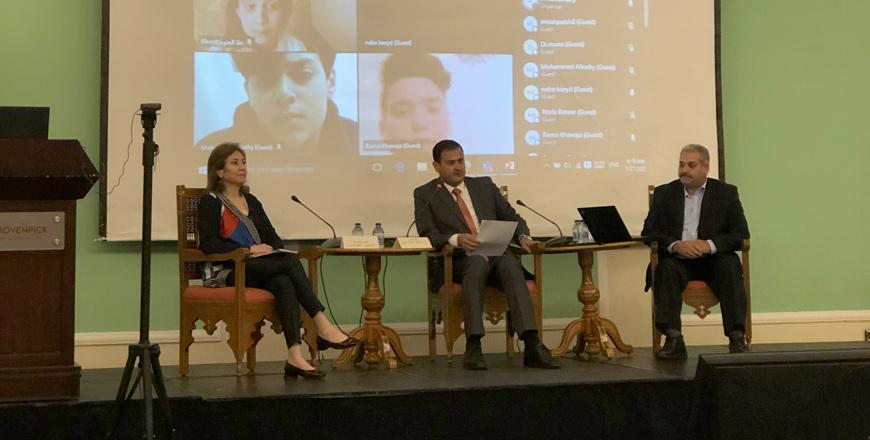- Local News
- Mon-2021-06-28 | 02:19 pm

Nayrouz News Agency :
The National Council for Family Affairs’ (NCFA) two-day workshop, which kicked off on Saturday, discussed the different aspects of children’s rights in various sessions by a number of deputies, representatives of civil society organisations, and experts.
In collaboration with UNICEF, the workshop aims to mobilise support for the draft law on children’s rights.
In the first session, Chairman of Parliament’s Legal Committee Mohammad Hilalat emphasised that passing the law is a need, given the rapid advancement of the child rights system, which necessitates the creation of a legislative and legal environment that promotes the child’s best interests.
"The Parliament’s Legal Committee will evaluate the proposed law legislatively, technically and objectively as soon as it is received by the government, in conjunction with other appropriate authorities,” Hilalat said during the session.
Hanan Althaher, a specialist in children’s laws, noted that the establishment of a legislation on the rights of children with "a Jordanian identity” is critical in ensuring that all children on the Kingdom’s territory are protected.
Abeer Aljbour, head of Parliament’s Women and Family Affairs Committee, chairing the second session, emphasised that investing in the rights of a child has distinctive social impact, such as providing a suitable environment for children, which makes them a positive component of society. It also reduces social and family care costs on official institutions.
"Our judicial system has different laws for the protection of children and their rights, as well as for the provision of social services, which necessitates their integration under special legislation for children’s rights,” Aljbour noted.
Assistant Secretary General for Administration and Development at the Ministry of Social Development, Ayesh Alawamleh indicated that the ministry allocates around 41 per cent of its budget to the childhood sector, which is a top priority for the ministry.
Ibrahim Aqel, head of the Institute for Family and Child Health, highlighted the necessity of investing in children’s health, citing the numerous health issues that children face.
"The effects of these issues do not present themselves now, but rather in the next 10 to 20 years, which is why it is important to invest in health,” he said.
According to the government coordinator for human rights Natheer Alawamleh, "the government is serious about approving the children’s law because of its high importance in our society”.
"The draft law will be brought to the ministerial services, infrastructure, and economic development committees for their recommendations to the Cabinet,” he added.
During the second day of the workshop, Ziad Tweissi, an education expert, discussed the importance of investing in early childhood facilities (nurseries and kindergartens), as well as the importance of return on this investment.
Military judge Osama Al Manasah shed light on the financial implications of the adoption of the proposed law, noting that efforts must exerted to finding solutions to this issue.
During the sessions, a group of young Jordanian children from the Jordanian Child Parliament participated virtually in the discussion









